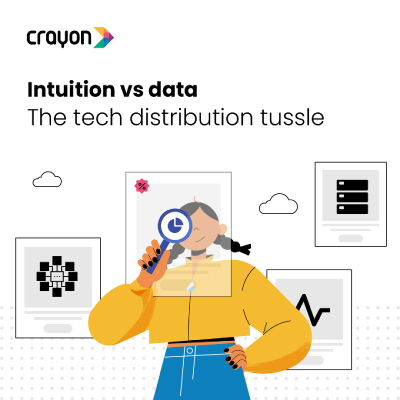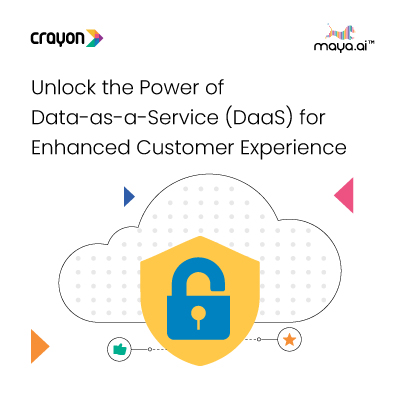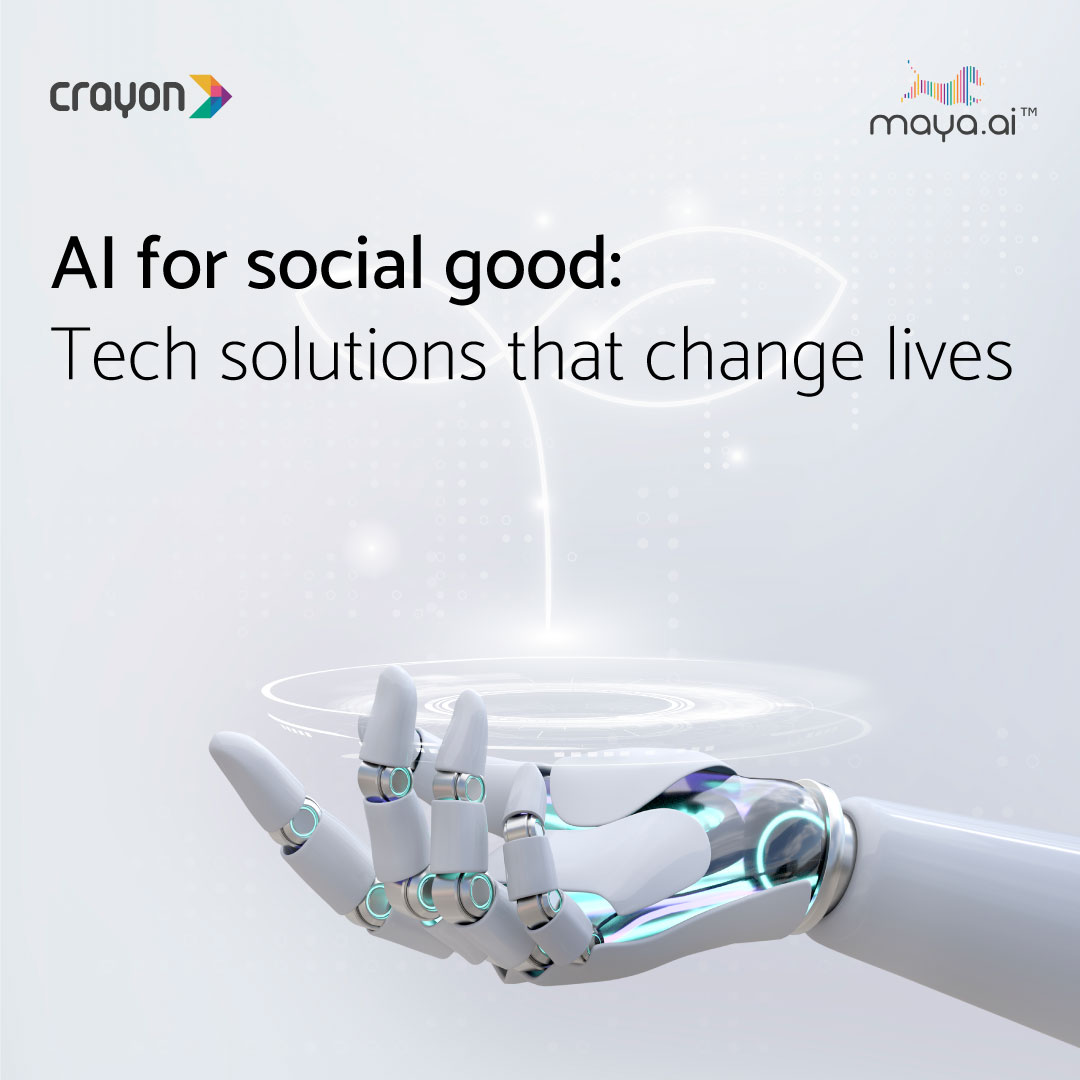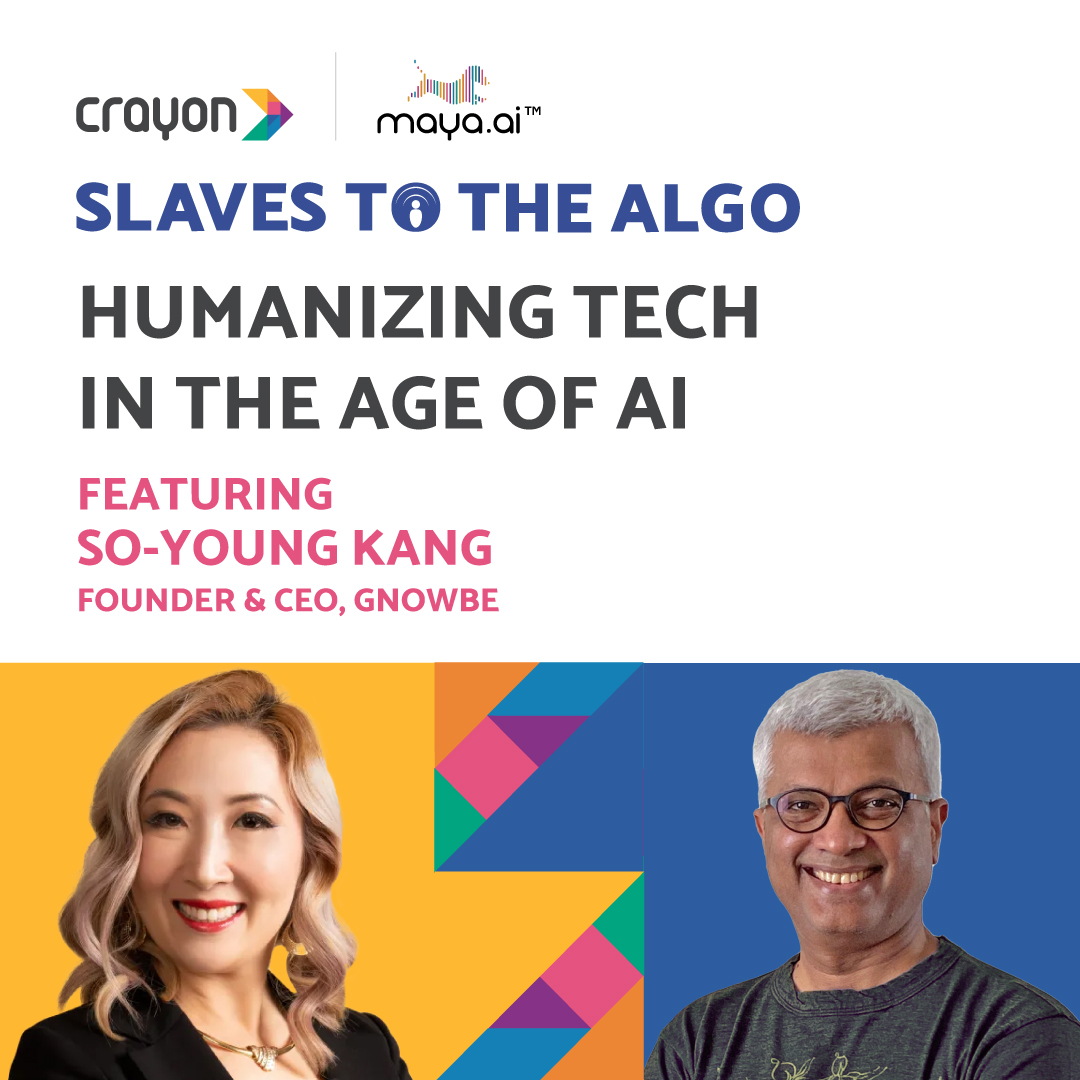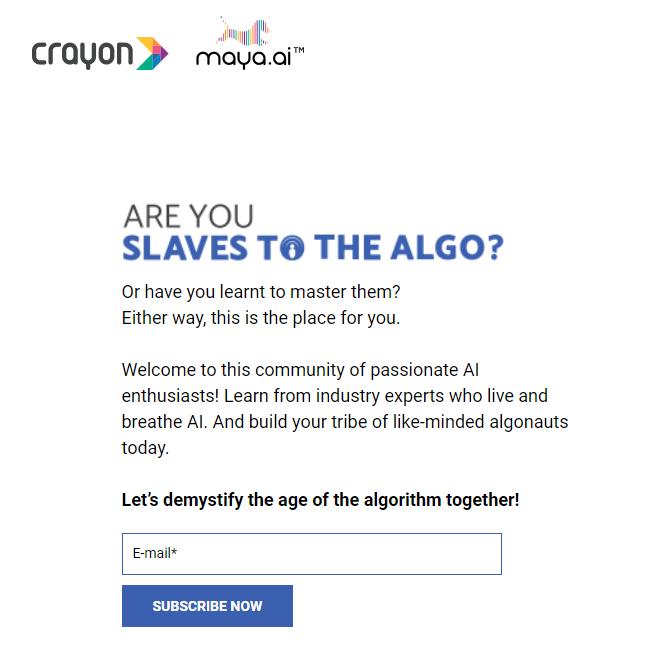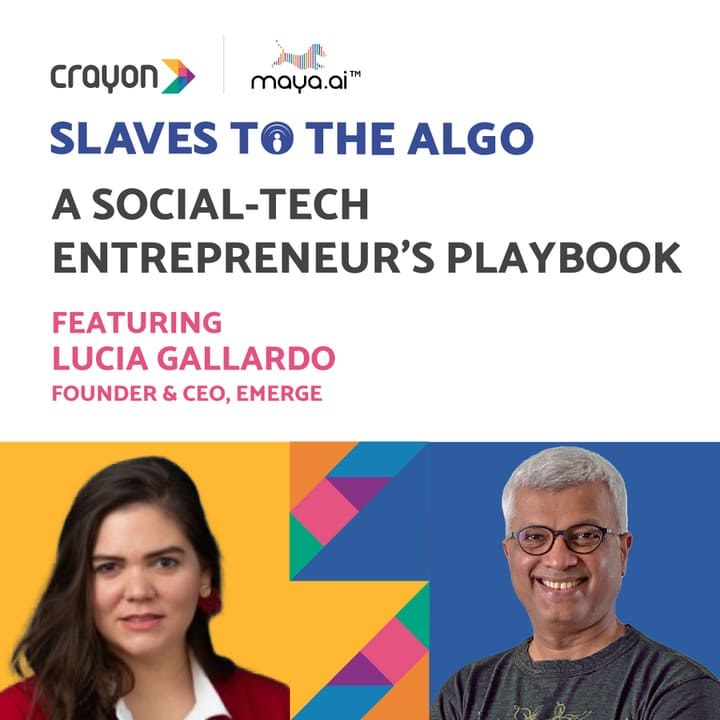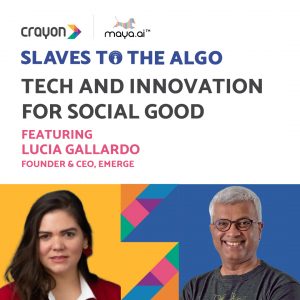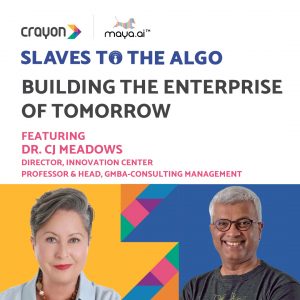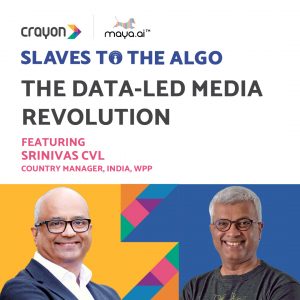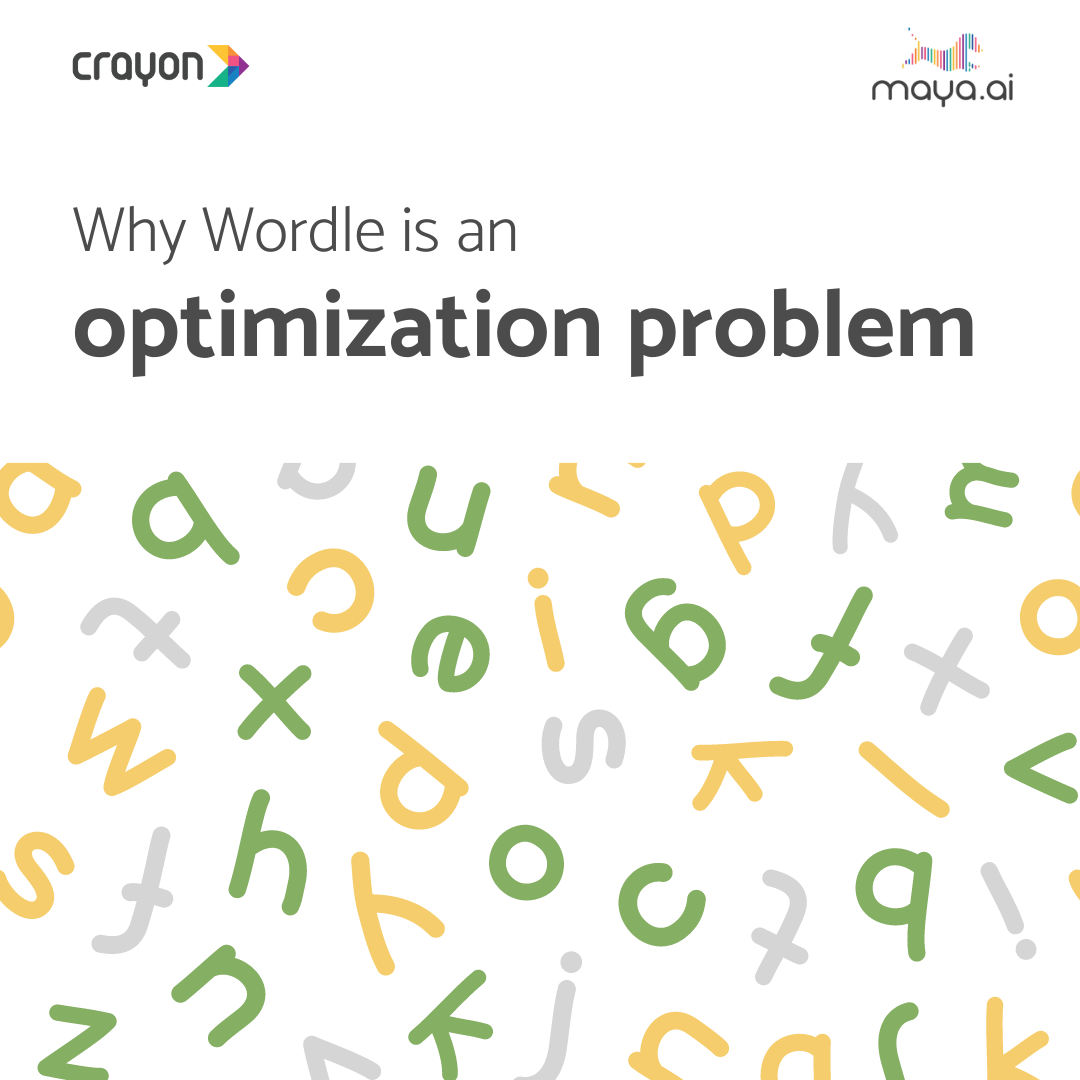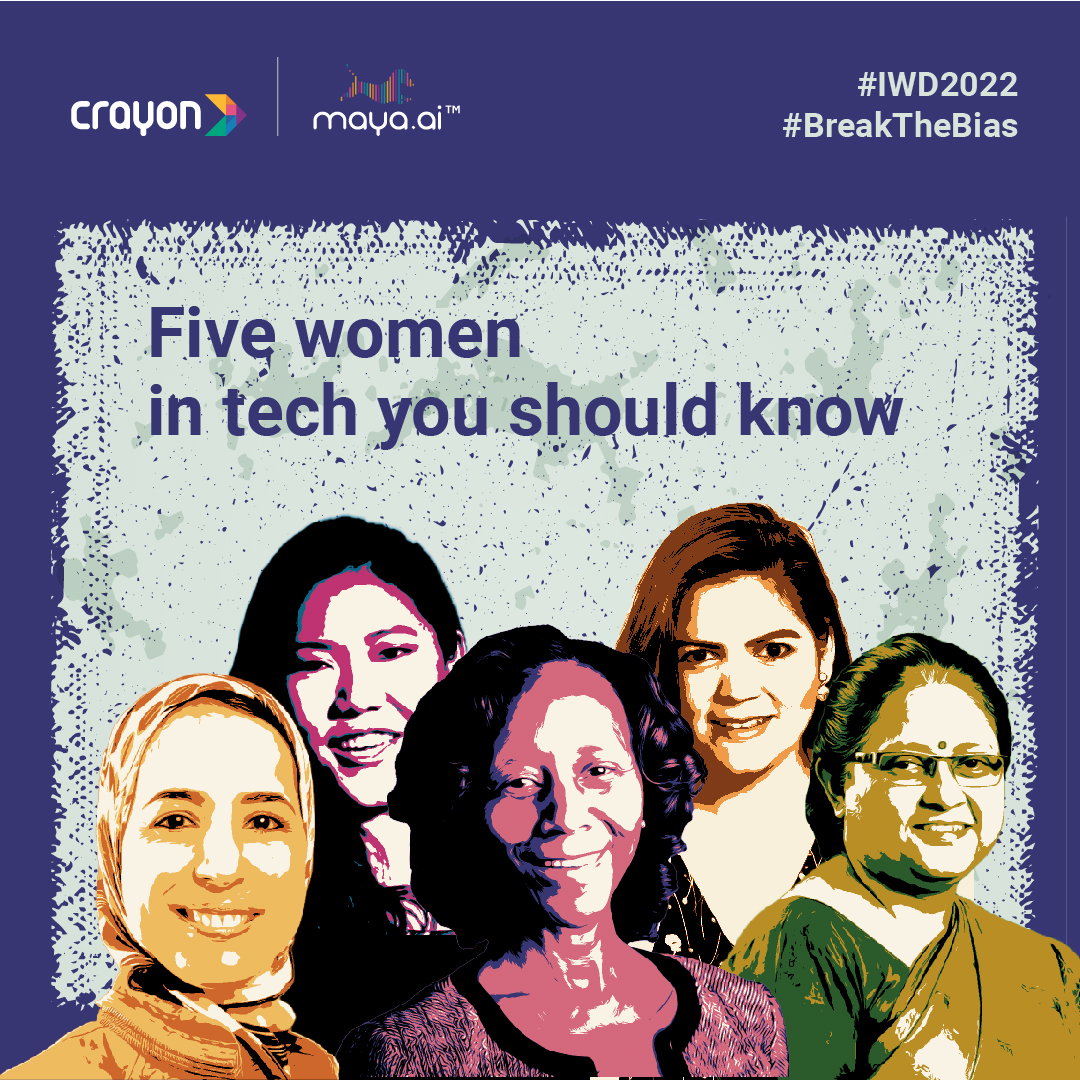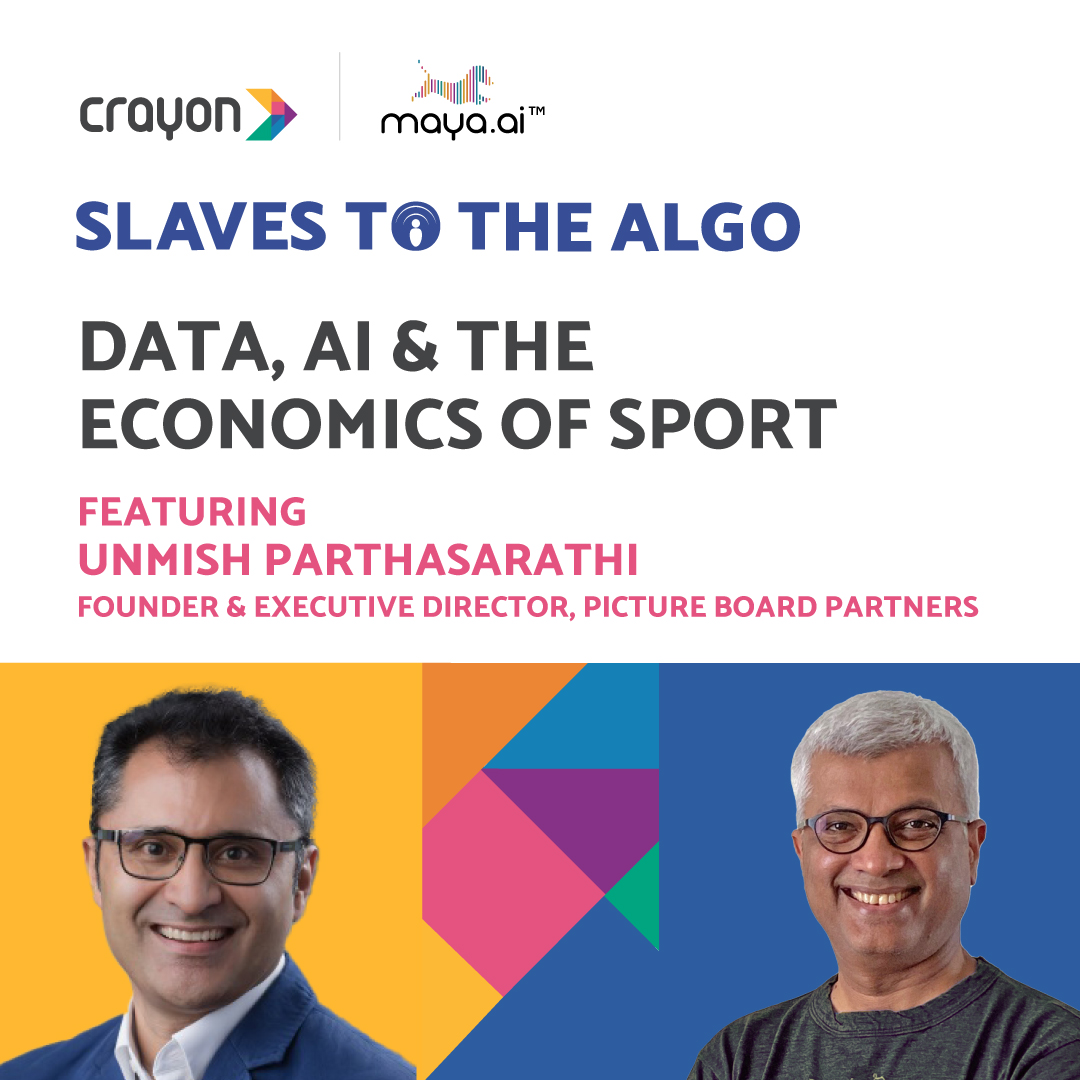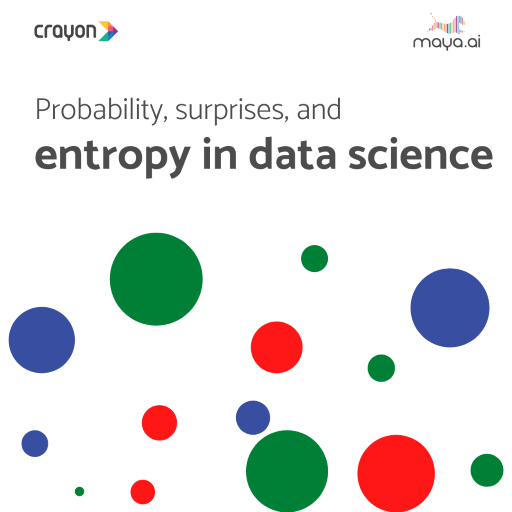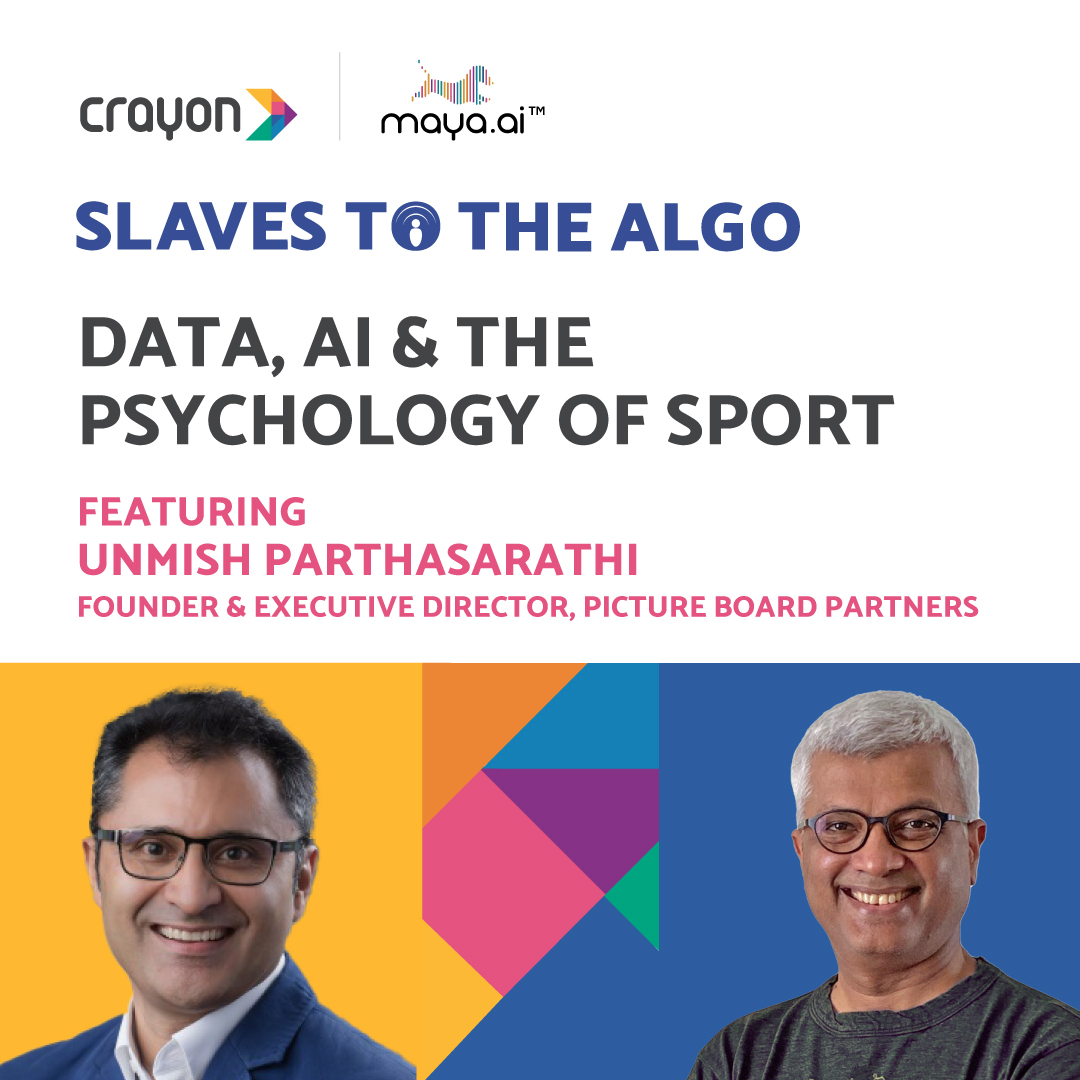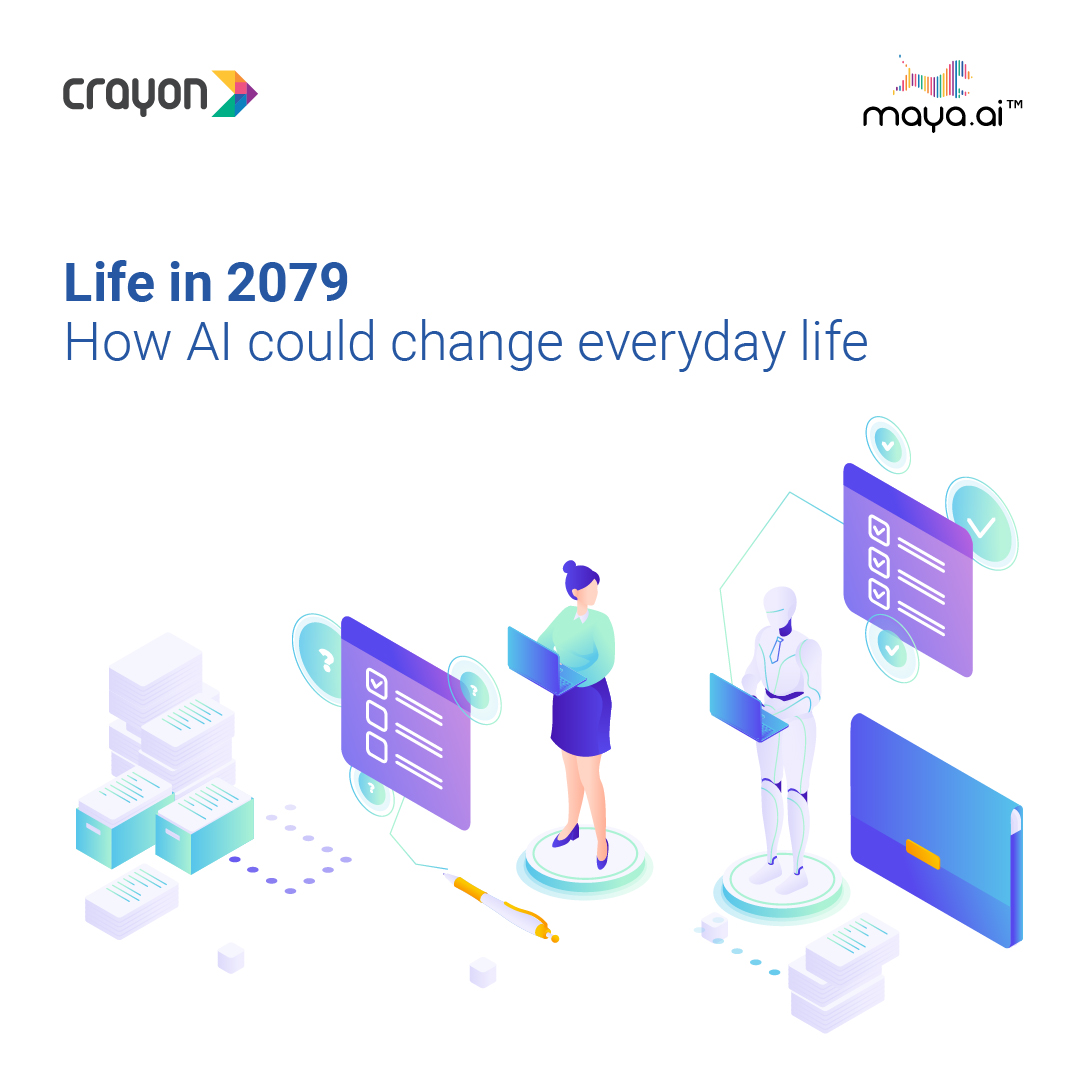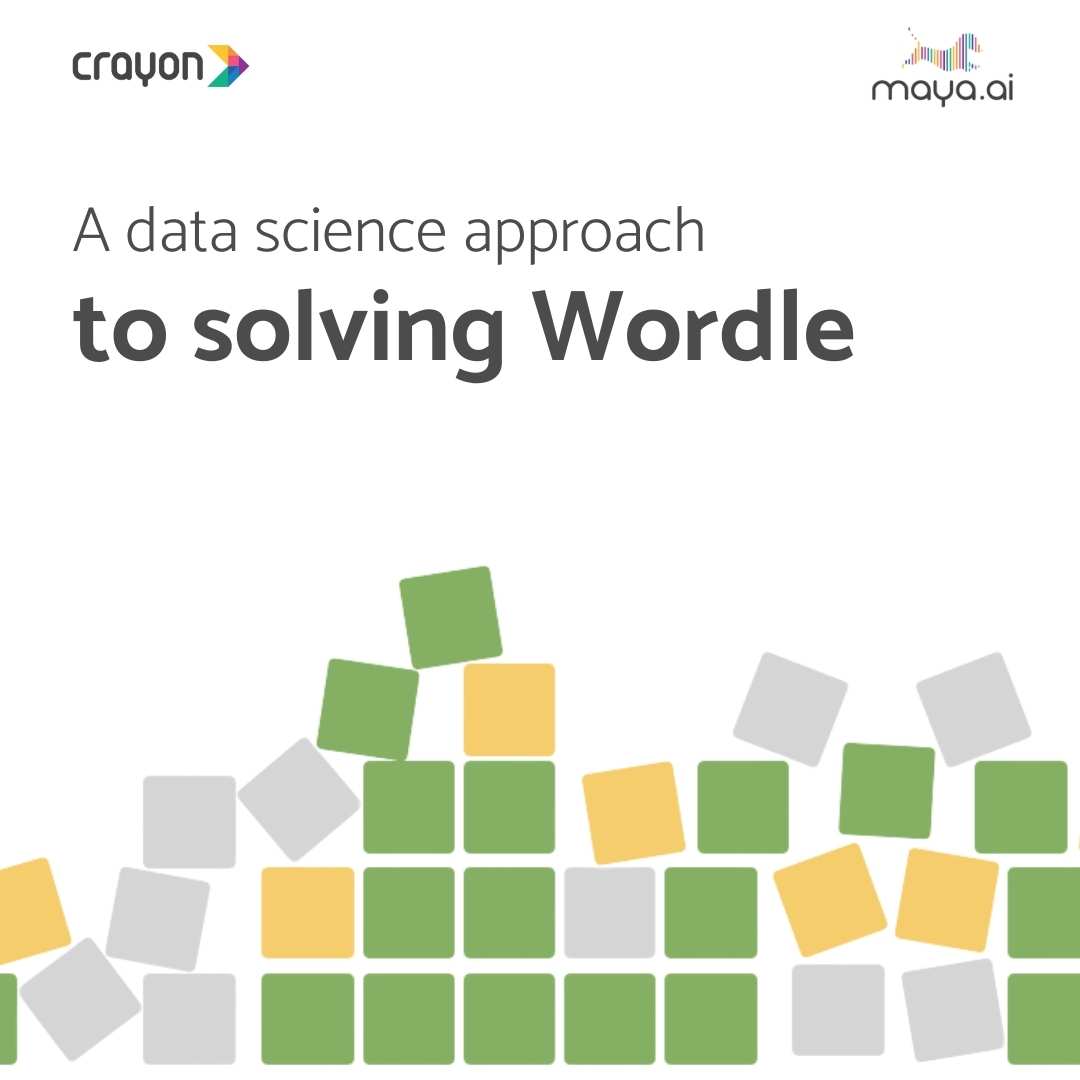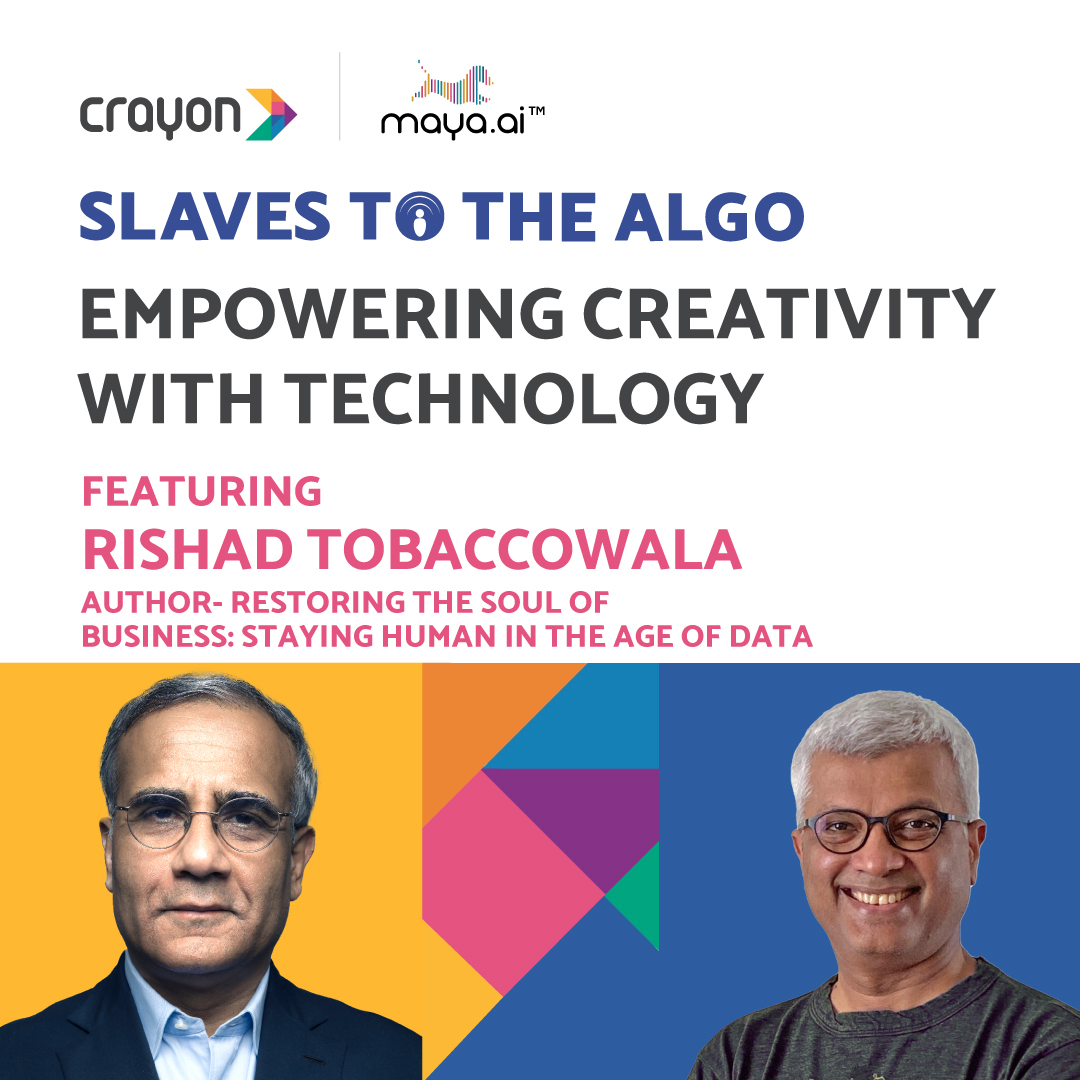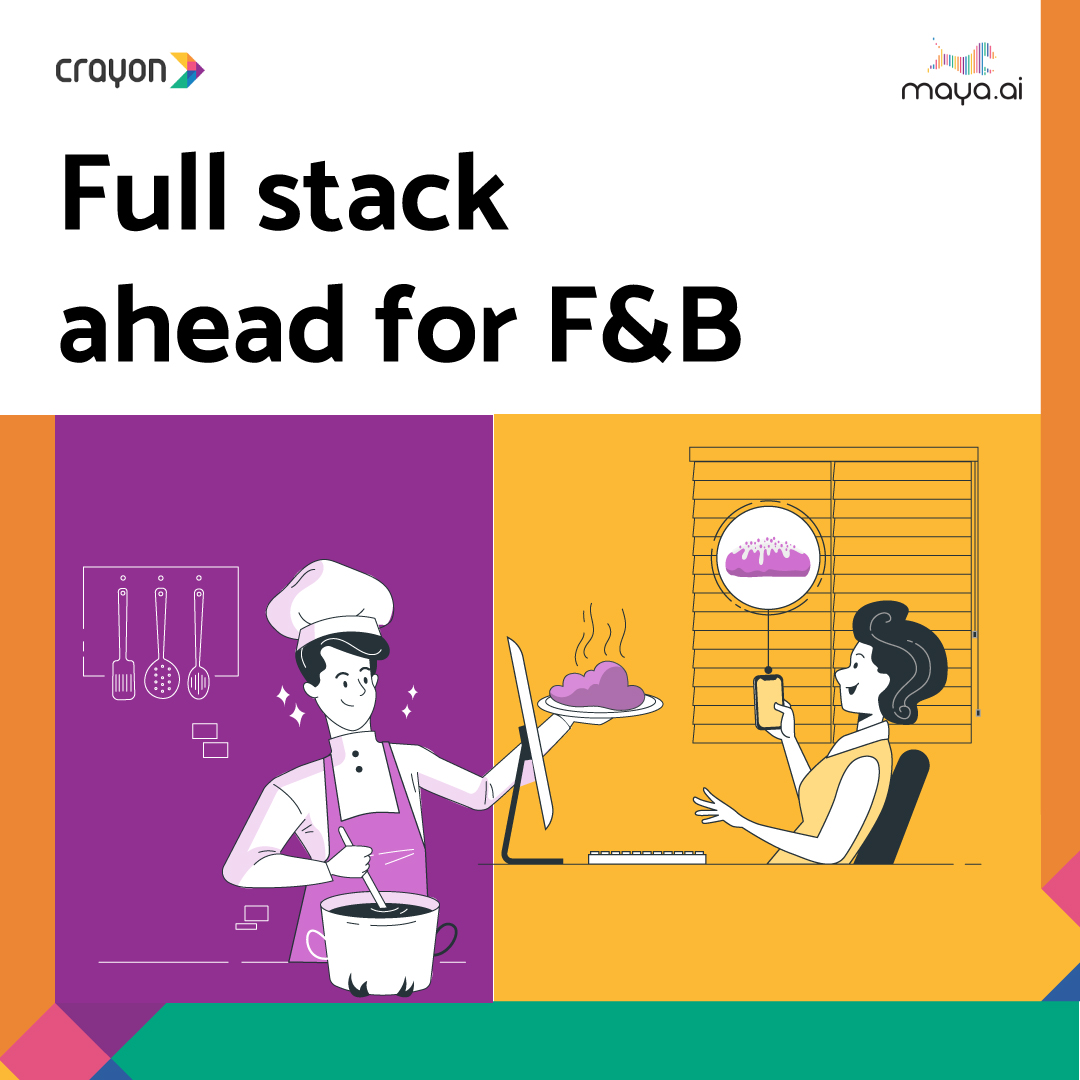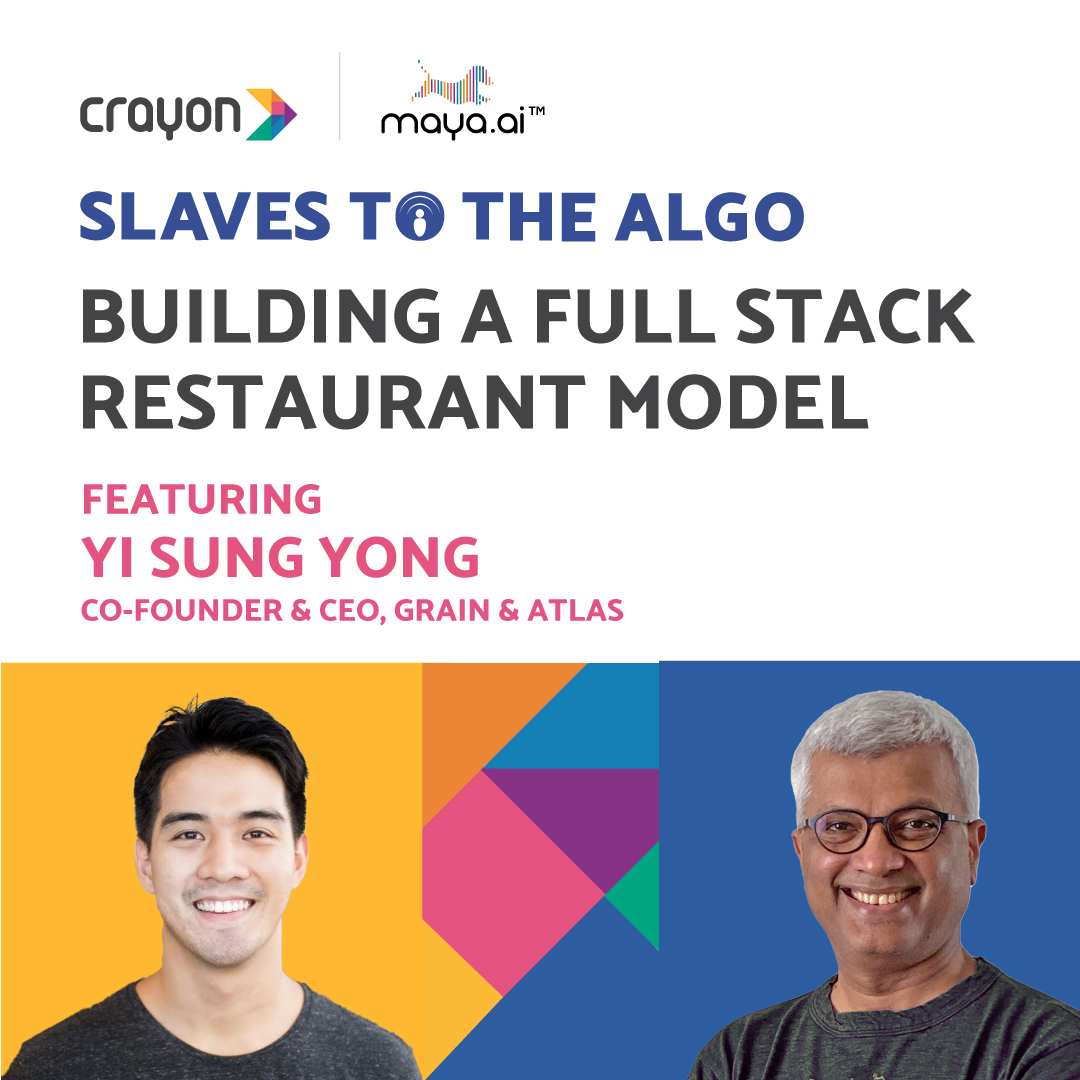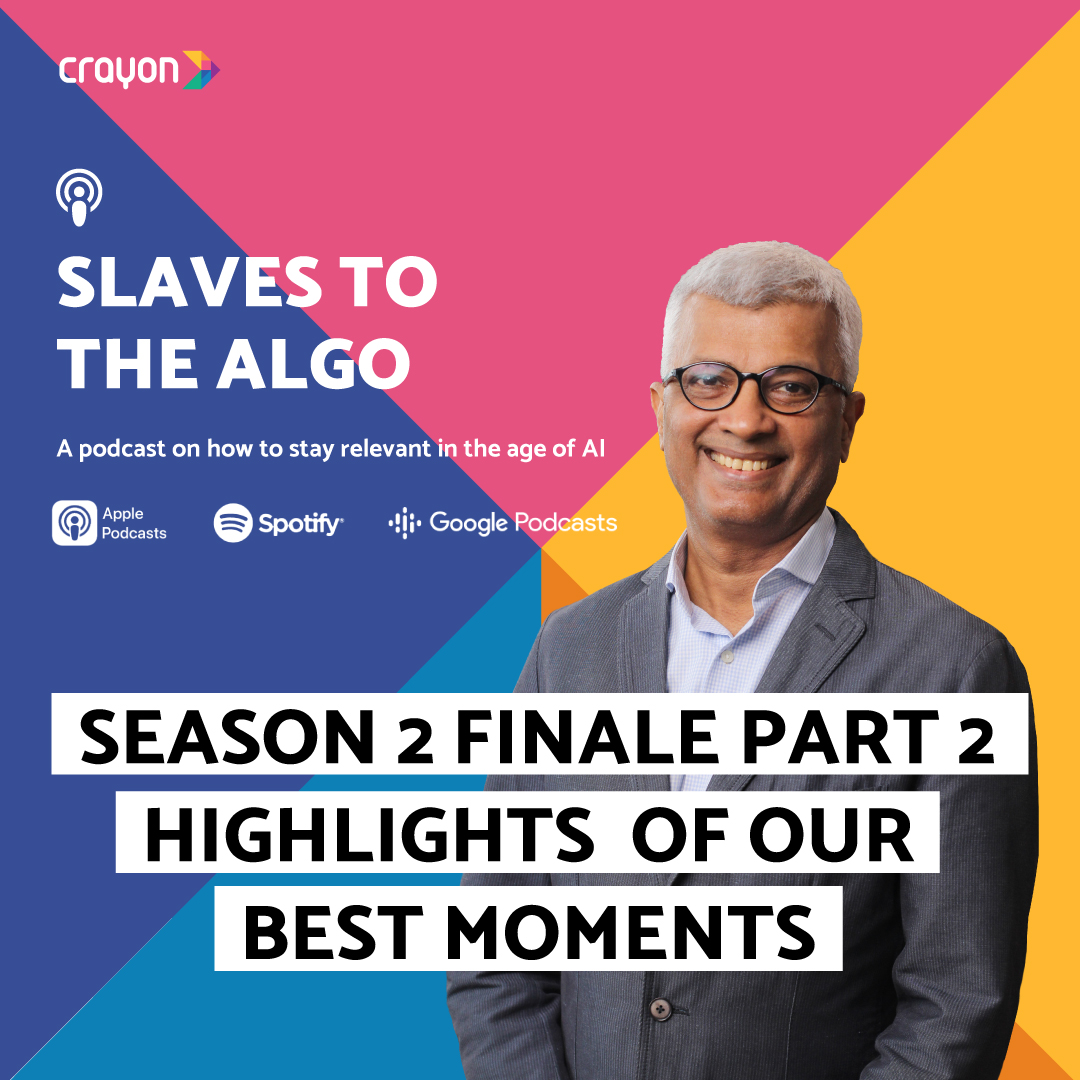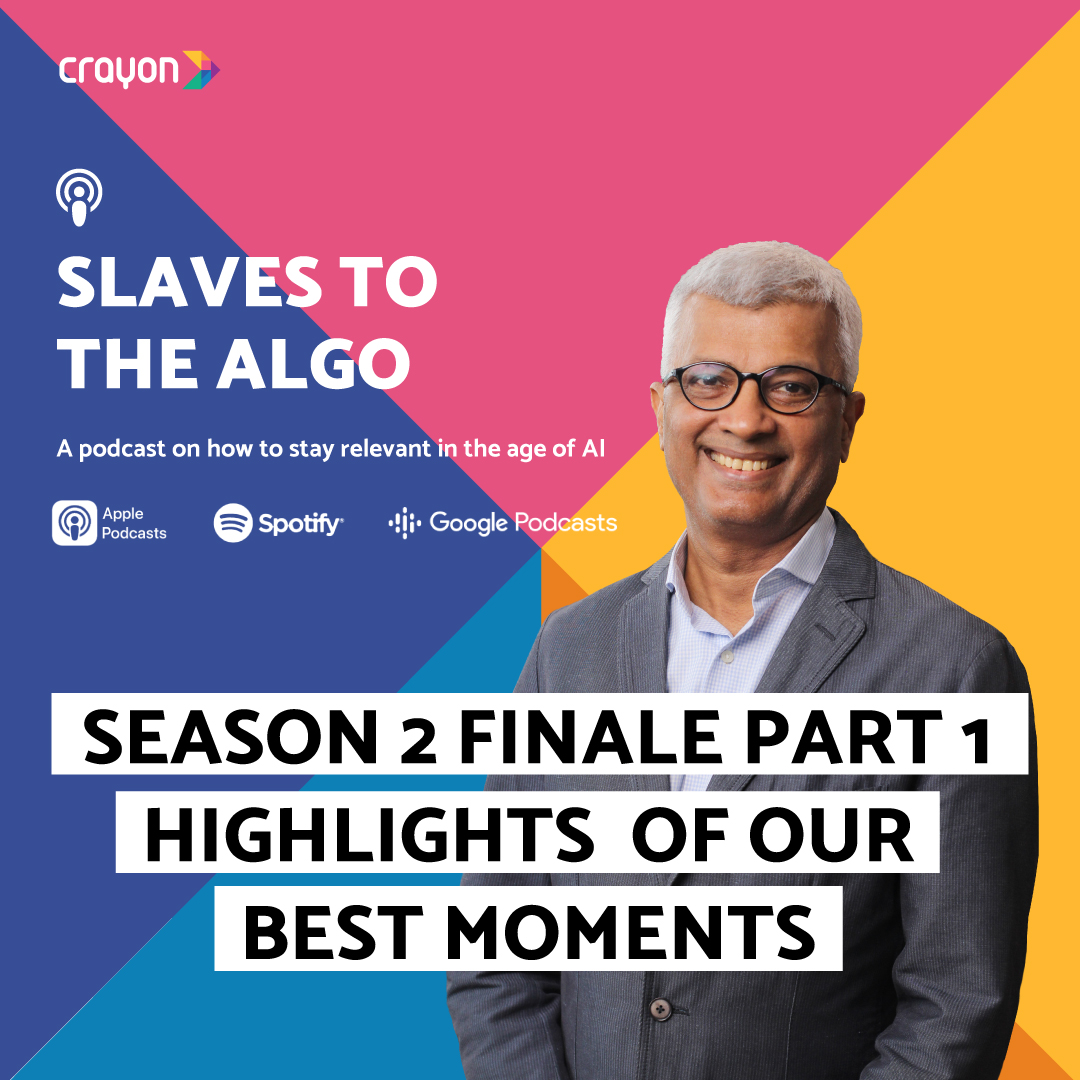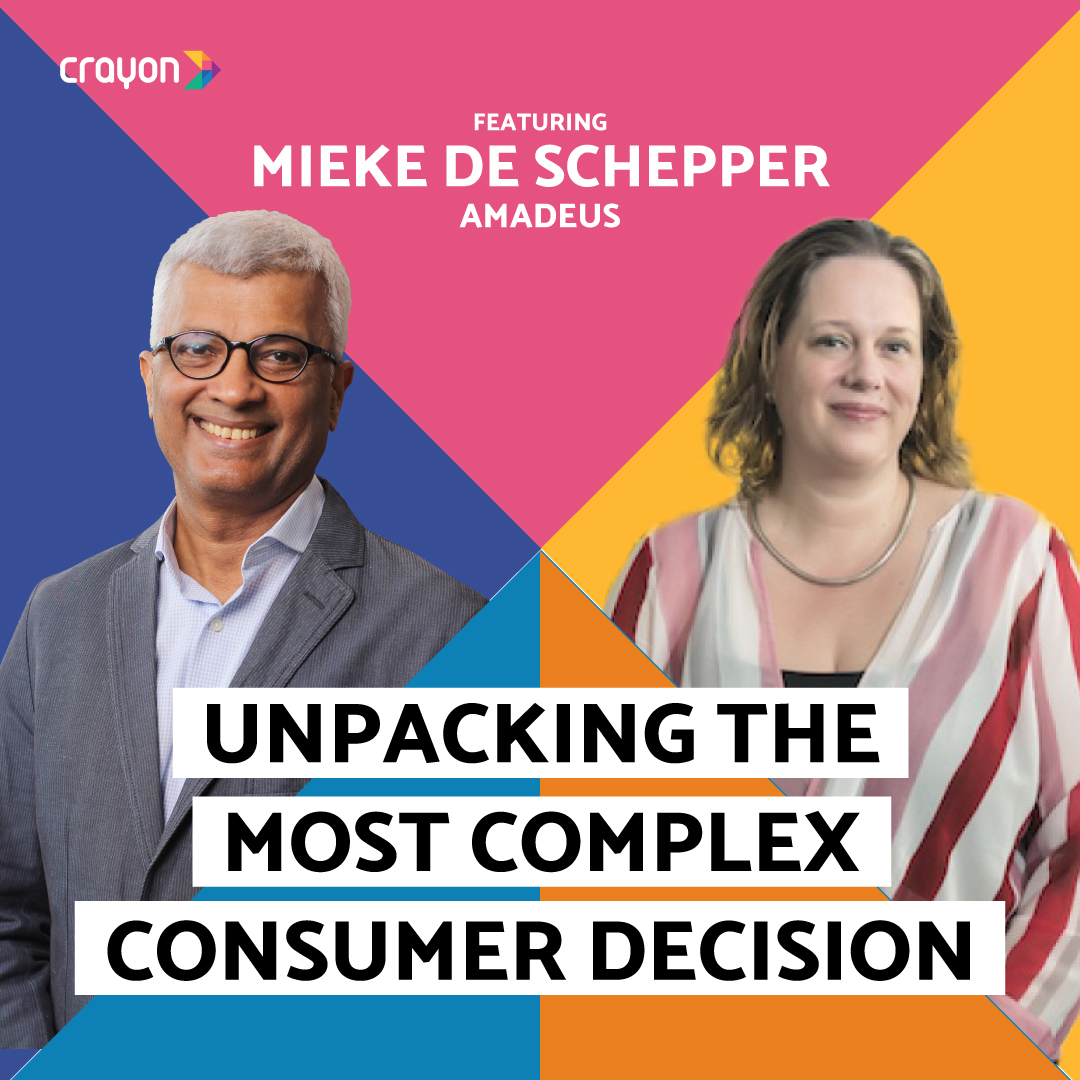Four-time highly successful entrepreneur, “algonaut,” and one of the earliest leaders of AI Peng Ong discusses the evolution of technology in multiple spheres in this week’s episode of Slaves to the Algo. In the first half of a deeply insightful conversation, Peng talked about the match-making algorithm (00:04:05) based on his experience as the co-founder of Match.Com, how modern-day systems can evolve to build trust among consumers (00:13:14) and his journey from founding and exiting three very different companies to becoming a venture-capitalist with Monk’s Hill (00:17:45).
In the latter half of the episode, speaking from his position as an investor, Peng detailed how today’s startups differentiate themselves by focusing on establishing relationships with consumers, not transactions (00:24:33). Peng also described how Monk’s Hill is resolving returns while vying for long-term success in its portfolio (00:30:15) and shared his views on creating value from your bits even if your business is highly atomized (00:33:31). Finally, Peng wrapped up by predicting that while AI will drive productivity through the roof and perhaps lead to fewer jobs, its evolution can also address the massive challenge of climate change (00:36:35).
About Slaves to the Algo
Whether we know it or not, like it or not, our lives have been taken over by algorithms. Join two-time entrepreneur and AI evangelist Suresh Shankar, as he talks to leading experts in various fields to understand how they are using or being used by algorithms in their personal and professional lives. Each episode highlights how businesses can leverage the power of data in their strategy to stay relevant in this new age of AI. Slaves to the Algo is brought to you by Crayon Data, a Singapore-based AI and big-data startup.
Suresh Shankar is the founder and CEO of Crayon Data, a leading AI and big data start-up based in Singapore. Crayon Data’s flagship platform, maya.ai, is the AI platform powering the age of relevance.
How to listen to our podcast
Apple Podcasts
Spotify
Google Podcasts
YouTube
Full Transcript of S2EP8 below:
Suresh:
Hello viewers and listeners, I’m Suresh Shankar, co-founder and CEO of Crayon Data, an AI and Big Data startup. Delighted to welcome you back to the next episode of Slaves to the Algo. That’s right. Slaves to the Algo. Slaves to the Algo is my attempt to demystify the age of the algorithm by having experts come and share their views on what exactly algorithms are doing in our personal and professional lives. Will lead it to utopia, or dystopia?
And today I’m delighted to have a person that I consider an “algonaut.” Someone who’s been involved in algorithms for a very long time. I’m delighted to welcome Peng Ong. Peng is a technopreneur, an investor and an all-round leader in the field of technology in both the US and in Asia. He currently is the Founder and Managing Partner of Monk’s Hill Ventures, but Peng’s claim to fame is that he’s actually been an entrepreneur who has had multiple exits with Match.com, Interwoven and Encentuate.
He basically also has a very interesting take. He calls himself an entrepreneur for entrepreneurs. I’ve known Peng for a long time, and I’m really delighted that he’s joining us on the show. Welcome Peng!
Peng:
Thank you.
Suresh (00:01:21) – Favorite Algorithms:
Uh, Peng, you know, I think, I always like to start by you know while this is all about business in some way and how algorithms are generated, I like to start by asking people a very slightly more personal take on this right. And I think you’ve been involved with this whole business of how do you create algorithms for a very long time.
My question to you is, you know, if you had to look at two or three algorithms that really kind of change the way you think about life or affected your life either as a person or your professional life, what would they be? What would instinctively come to your mind?
Peng:
I think the first one is what we’ve been calling the feed-flow AI, you know, when you go to something like Tik Tok or Facebook or Instagram, there’s something behind the scenes that shows you look at this next, look at this next, look at this next, right. What they do in those algorithms causes people to just sit there and look at the next thing, and the engagement increases, either revenues, or click throughs on ads which is revenues.
And the interesting part is that algorithm is synching up with your brain stem. It is going yeah, look at this look at this, look at this, and you’re not even thinking about it, you’re just going okay, okay, okay. And I think that’s a very interesting discovery that the algo guys have made that really digs into fundamentals of the human brain and how we absorb things. And I think it can be used for bad, it can be used for good, or it can be used to make money. So, I don’t necessarily say it’s all bad because you can use that to increase your health, your focus on financial success, etc., or the friends, focus on building relationships. But of course, you can use to make money for the companies.
Suresh:
So, so, that’s really fascinating. Do you think the algorithm people actually talked to the neuroscience people and did this? Or did they stumble upon it? And you know the reason I’m asking you this is that you are a founder of match.com, and match was literally one of the first companies that actually used algorithms in terms of matching people to each other, and this is way back in the 90s when you know, when the word algorithm was an uncommon thing. So, it is a combination of algorithm and neuroscience, or the algorithm guy just used the technology and then stumbled upon this neuroscientific discovery?
Peng:
Yeah, I mean, to be fair, this is probably not one algorithm, it’s a whole bunch of different algorithms put together by different groups and I’m sure some groups have talked to neuroscientists, some groups just run this on large numbers of people and, you know like, hundreds of millions of people viewing every day, and they figure out what works, what doesn’t, you know. You can discover these things by understanding the underlying principles of how our brain works, or you can just statistically discover these algorithms to machine learning.
Suresh:
And when you did match.com, what did you do? Did you, you know, again like I said it’s a long time ago but it’s such a fascinating thing because it is almost a foundational company in some ways behind this.
Peng (00:04:50) – Match.Com:
Well, I’m sure there were other CTOs of measure coms that came on and talked about this over the decades. But when we first started, was very very primitive. There were 5, 10, 15 parameters like political leanings are you Democrat are you Republican, you like cats and dogs or cats, and/or dogs, and some basic question, height, weight. We actually even took into account, income, if you wanted to share that with us. And we sort of just assumed that people that are similar in ranges, height, weight, etc., would get along better. Very unsophisticated.
But what I discovered about matching humans is that it’s not that hard. Otherwise, there won’t be so many of us. It’s kind of obvious. So, so, yeah, if you take two human random human beings and you try to get them to match maybe it will work, but if you took 1000 men and 1000 women, and you tried to match them, the chances are you can shuffle them around until there’s a lot of matches right so it wasn’t, I don’t think it wasn’t, it was that hard a problem.
Suresh:
So, but it’s interesting that you say you started off with a few attributes, and you did the matching on that basis, and yes, you said it was primitive, but it wasn’t primitive at that time. Basically you, but now when you come forward and you look at people like, I mean even Tinder is passe now, right? Bumble and people like that, you know, the guys are coming out. How exactly are these matching algorithms evolved to today? When you look at them today compared to what they were doing, how much more sophisticated are they, what do they use, could you shed some help shed some light for our listeners?
Peng:
I, to be honest, I haven’t been following the dating business that much, but the ones I’ve seen, and you can imagine having founded Match.com, anyone doing a dating company ends up finding themselves on my door doorstep. But a lot of it is just people having different spins on how the matchup happens right? Some go on dinners, lunches, you know, some is just an initial conversation online etc. So, it’s not about the algorithm, it’s about letting humans discover what works for them, right? So, a lot of it is not about trying to get massive matches. But, but there is some level of efficiency in in dating programs which is why they’re so successful. It’s very simple.
If you walk into a room with 100 people. And even if your ideal match is there, the chances are you might not even meet him or her and have a chance to talk to him or her, lay low and get the first date, etc. Because it’s one in 100. It’s very difficult for you to find one in a 100. When you have an hour or two at a party, there’s alcohol, there’s friends. Um, but if you ask the computer, you know, here are the, you know 50 things I like things I don’t like etc., you just take a whole bunch of data, and you run it over that 100 people, the matches pop up just very, very close, right? And so, when you go out on a date with this person, your long term, your long-term matches are there, so it’s just, you have chemistry. Right, so it gets relatively simple, because if you have chemistry then long term you have, you don’t have problems. Oh, I guess I should say this for dating. It’s the opposites might attract, but it’s the similarities that sustain. So, if you’re building long term relationships, right, unique value systems, background culture belief systems, they are very similar. Right. And you need to understand each other. So, the daily interactions are not full of friction.
Suresh (00:09:36) – Modern Matchmaking
So that’s, that’s really interesting Peng because, let me try and do this right, I mean you talked about the algorithm actually doing the matching at scale and then you talked about the chemistry. Does the algorithm trigger the chemistry? Or the chemistry actually trigger the algorithm? And I know it’s both cause and effect and I know but you’re a person with actual practical experience on this.
Peng:
Hahaha, not that practical. I found my wife pretty early, so, who knows, right? We just, I don’t think people have done enough work in this area to understand cause and effect. I do know and I think this is an interesting area that the meeting rituals of human beings all around the world has changed because of online dating, and someone needs to go study that. I think it is very interesting…
Suresh:
That is very interesting. In what way? In what way?
Peng:
Well, the experiments the matchups happen a lot more, right? Than before. So, behaviors and how people interact like I’ve read through I haven’t observed this, but I read about how people have like serial dating on the same day. So, you have just three meetings scheduled, one hour, second hour, third hour, and all you do is meet and assess, and then you say things very bluntly, hey look I don’t think it’s going to work, and most of the time you say that because…
Suresh:
You know, in India that would call parental matchmaking, right? They take you to three different places and you do the same thing and somebody else does the assessment and now an algorithm…
Peng:
Yeah, hahaha. Yeah, I guess parents were the original matchmakers.
Suresh:
Yeah absolutely. But it’s very interesting, right, because if you really look at what we’re saying. The, the human mind doesn’t seem to your parents doing it or your society doing it so then one primitive algorithm as you call it, but literally the start of this now more and more sophisticated algorithms. So, it seems really that it’s not the technology is changing human beings, so much is enabling through, you know, just looking at more and more data, it’s not really fundamentally changing anything.
Peng:
I think you’re right. I think by this changing social norms is changing, what we can do with our brainstem.
Suresh:
Yeah and that’s a podcast by itself, talking to you about brain stems and how the reptilian mind, the human person works, but I want to go a little bit further into that it’s very interesting you said you meet people and then you suddenly realize other things that maybe the algorithm knew didn’t necessarily reveal but you find other things because that’s how a lot of these things happen and mathematically speaking, whenever I tried to talk to a client about the idea of precision and recall. And the fact that these two are fundamentally you can set the evidence, it’s like, you know, if you reduce one you reduce the other.
Most people don’t seem to understand that, you know, the there’s either a rabbit hole of, you know opposition and you say, I’ve got to be right, or you open up the aperture and allow them to see new choices. And, you know, isn’t this really the core of matching finding that little balance between precision and recall mathematically or how many new things that I tell you was is, how much do I make the algorithm trust you. I mean, you trust the algorithm.
Peng (00:13:14) – Trusting The Algorithm:
Yeah, um, it’s. Trust is interesting word you choose to use. I’ve always said, trust is an emotion. Systems help you build trust, but in the end, it’s an emotion, right? Let’s say blockchains. People say, sorry I’m going off in different tangent as an example, blockchains are what trust is about, you know, because if you have a blockchain you know that transactions happen so you can have trust in the system. But actually, people could say, and there has been situations where people go into the blockchain and edit stuff, right. So, so, so long as you as a human being or consumer you can go no, I don’t trust that system because I don’t trust that guy or whatever, right? Th, however pure the infrastructure underneath it doesn’t matter. I still don’t trust it. So, your system on matching, if people trust it, there could be even placebo effects. So, who knows how, how our brain works to in reaction to the trust we have for certain things, or the mistrust, we have to other things? Right? It’s a very complicated system up here.
Suresh:
Absolutely.
Peng:
So, I can’t sit here and tell you if you do this on the elbow, you get the trust of people and if you don’t you don’t get to trust you, because the thing all that matters…
Suresh:
But I think I liked the way you put it that there is trust with the emotion, but the system works towards building the trust. And one of the things I’m taking away even as an entrepreneur and building a product company that does this for a living, is that when I talk to my engineers, I talk to clients all the time saying the way a system builds trust is, you focus on precision. Show enough stuff that the customer relates to and likes. Because then they say okay, this seems to know me, and you increase the aperture slowly over time to kind of focus on the recall. Things that you know, you take one step at a time, and you go wider and wider as you discover that, and I’m sure these guys have figured it out or the algorithms have figured it out.
Which makes me, I think, when this is a fascinating discussion I think the whole, the whole podcast could literally be about this, I don’t know, you’re a reader clearly, I don’t know whether you have read Clara, the latest book, which, by Kazuo Ishiguro, and he talks about how everybody is going to have a personal agent and the first agent really, I mean it’s like that movie Her, right? Do you think that world is going to come? How far away?
Peng:
We have, in some ways, already. It’s just that the, the agent which is the mobile phone or laptop doesn’t have a human interface right? It’s, it’s all different pieces. All you need to do is glue it together, you can schedule your meetings you can schedule travels, you can buy things, all that stuff, just by having a slightly more sophisticated human interface and that’s it. You already have that thing, think about what we can do today from our mobile phone, or from our computer. The capability is there, the interface is not. You don’t need a super self-aware, AI, you just need an AI, that will turn on the lights and boom, lights are not, no. That’s what you need, and we have all that capability. It’s just not properly integrated to what Amazon is trying to do that a lot of people don’t like the privacy issues around that, but you know I have Alexa sitting outside. So, it’s going to get there sooner than…
Suresh (00:17:05) – How Peng Became a Venture Capitalist:
And, do you feel, and probably I’m going to reserve this question about whether it’s utopian or dystopian to the end. But moving on, Peng, I mean I think you did match.com, like I said, a pioneer in algorithms. You did work with Interwoven which is very interesting because almost one of the first companies to use unstructured data in a big way. Now everybody talks about it but interwoven was a content management company before there was one and then lot of software on unstructured data, you did Encentuate. But now when I look at where you reached and you’re trying to, you know, you’re running your own startup in that. And how did the, how did the dots, add up? I mean like I said you did match you did… how did your journey go from there to actually becoming a venture capitalist?
Peng:
Yeah, so venture capitalist is a slightly different step, but if there’s a theme, I’d run through all my companies including Monk’s Hill, is what’s the ridiculous state of the world I’m trying to fix? Why, how does my existence, address the state of the world that I think is kind of silly. That’s right. So, in the case of Match, Match’s parent company was actually called Electric Classifieds, it wasn’t just dating. So it was, how do you find something to buy or sell online or transact online, as opposed to newspapers, right. So, the, the, the previously if you wanted to find something, your fingers got ink on it, right, because you’re looking in your finger doing the walking. Yeah, through the classified ads. This made no sense at all. How many ads can you read per minute, right? Not that many. And you know exactly what you want so why don’t you get the computer to search for it? So, idea was to have all the classifieds, of all the newspapers, put themselves on us. Right. Of course, there were all kinds of competitive concerns etc. and newspapers were resistant to technification or digitalization, so long until most of them went bankrupt, right?
So that didn’t quite happen, but match did. So, the ridiculous state of the world was, you know, human beings were using human brains and newspapers to find things. So, Interwoven was about managing the millions of parts that need to come together based on, maybe even 1000s of knowledge workers really come together to form one website. And it didn’t make sense what was happening, people are running around all over the place, breaking things as they check things into the website, etc. And we provided this structure for people, and so on. I’m not sure if you want me to talk about that.
Suresh:
No, but I think I have discovered the algorithm to getting money from Monk’s Hill. So, to rock up to you and say here is the ridiculous state of the world I’m trying to solve. And that triggers your brain stem!
Peng:
Yeah, it does, it does.
Suresh:
But you know I mean like you know you’re doing investing I’m sure you see 1000s of we’ve talked about this, you see 1000s of people coming to you and saying, listen, I have a big idea. And I have two questions for you. One is, do you see the world of investing in venture capitals itself changing? Are you using AI, data to actually sift through all of this and say, I have heard of companies saying we can predict the next unicorn and all of that? And is the world of AI and data going to come to venture capital investing itself? And maybe I should just ask you that question before I go to the next one.
Peng:
I think ultimately what I love about this domain is we’re all about innovation and throwing algorithms at the stuff we do, as investors, makes sense, right? That’s what people are trying to do. If I talked about it from a technical point of view, that one of the worries I have about that approach is the sample size is not big enough, might not be big enough. If you look at successful AI learning algorithms they tend to work on millions or 10s of millions of data points. There are lending startups. So, and the other problem is, what you parameterize some learning systems is very easy to look at and go, you know, it might not be a simple problem but how you digitize that problem is pretty straightforward. You’ve got 64 by 64 in black and white and that’s it, right?
Think about the world of startups and what factors are involved, there’s a market itself, and that’s hugely complex as an entrepreneur and how do you parameterize a human being. Is it as simple as dating, or is it more complicated? Don’t know right? So, you got to throw in all those parameters, some parameters, you can’t even measure property right because in here or in here, right? Yep. So, you know, I don’t know where we’re at with tracking. I guess psychographics from the perspective of human beings so we’re conscious about talking about this person’s leadership skills is EQ all that stuff. We do have those conversations, but we’re not clear how to digitize it so we can run an algorithm. So, our algorithm is to use our human partners to do this…
Suresh:
To make those assessments. Do you think that world will come? Just like you know now trading I mean, high speed trading is all essentially algorithmic and most decisions, investment decisions the stock market get made like that. Do you think that world is going to come? I think, Y Combinator is trying that, isn’t it?
Peng:
In larger numbers, you know, and then, you know, only a few succeed. So, you can figure out. But even Y Combinator, I’m not sure they have large numbers to be very accurate. They could probably have some learnings, they have for the 100, per batch in three batches, or the 300 a year. That’s not a lot of numbers as a lot of as far as machine learning goes right. So, I think it’s going to be tough. I think there needs to be some improvement in machine learning before that can happen because I think there needs new directions of research on how to use smaller sample sizes, create the correct learning like, like we, we actually don’t learn on million pieces of data, right? We learn on dozens. And so, and we could be wrong, but what the, there’s a lot of work trying to figure out those kinds of algorithms, and when those come about man, I think this is a more an endeavor, more likely to succeed.
Suresh (00:24:33) – How Today’s Startups Are Differentiating Themselves:
True, true. Peng, I think I have you seen, the second part of the question, I mean you obviously invest in a lot of startups that do AI data, you know, and besides other things. Are you are seeing any new interesting startups I mean nothing confidential anything that you’re exciting new ways in which people are using data or algorithms in Southeast Asia, globally, anywhere else?
Peng:
Yeah. Um, so, so first of all, I think COVID has gotten people serious about doing something with their life, for whatever reason we’re seeing a whole flood of new deals and very well thought through deals, very serious entrepreneurs right who are busy trying to fund them. Um, so I, I think that’s a really good side effect of this pandemic is gotten people thinking about the meaning of their lives and what they’re trying to achieve so that I’m just making that note because it’s affected my life very directly because I’m very busy these days, there are so many good deals. That said, if I were to try and draw one, one interesting, albeit not all-consuming trend but is a trend that is seen in some of the thinking, entrepreneurs, we’ve talked about this is what I’ve been calling the movement, or the transition from transactions to relationships, how you focus businesses on relationships instead of transactions. Interesting.
It’s like how human beings used to behave in Kampongs and villages, you know each other, and the transaction is just a side effect of trust in some means right? You go to the grocery store you pick up a bunch of stuff and then you realize you got forgot your money at home. The guy says, don’t worry, pay me next time. That’s a focus on relationships and trust. So, how do you use that kind of thinking for businesses? You think how fragile trust is right, and it’s, it blows my mind how little, even the biggest companies focus on it.
Imagine we were still young, and I went out with your girlfriend, right, that trust is gone forever, right? Just one single act and that trust is gone, right? And yet when people build websites, and they sell your data, and you, they allow people to spam you because they pay them. No, they don’t realize that trust is just bought. And sometimes next to impossible to get back.
The problem in our world, specifically the technical, is we’ve been looking at the entire world as transactions, because we can do transactions well, we don’t do relationships very well because we don’t understand what that is. Or at least we don’t try to understand what those are technically, right. And so, we focus on cranking up relational transactions, because they drive top line, right? Every textbook you read on any technical expert Ruby on Rails you open it up, here’s how you improve your transaction rates, right.
And so, all the topmost valuable companies in the world in technology, they’re all driving transactions. Right. So, how the question we’re asking. I probably shouldn’t reveal the companies but one of the questions we’re asking is long term, how do we, you know, ensure that the cost of acquisition is still a transactional view of life, how do we ensure that cost of acquisition doesn’t go through the roof because somebody else is selling that to us right Google, Facebook, etc. And we figured if we can build really strong relationships with consumers in a particular domain. Let’s say you know why do you care about your health? What if we just become a friend, you have help friends, right, so anything health wise that happens to you, you go to this party and come to us interact with us to figure it out. If you think about it today if you have a health issue, right, you don’t end up going to a portal or you do some Googling and all that stuff, but in the end, you find your friend is a doctor, and you talk to that person and you find another one. Right. And so, why can’t that be a machine, right, why can’t that thing that you trust…
Suresh:
No, I can see another area which is recruitment right? I mean you know I still have people from 25, 30 years ago worked with me any job before they go, they call me, right? I don’t even know what they do but they call me and say I’m doing this and what do you think and I’m like dude, you’re like three steps ahead of me. That is that relationship of, you know careers would be I think a great one where, you know, people would be about relationships right?
Peng:
Yeah. Yeah, definitely. Short, what we call high value, low transaction rates, products of desks with that kind of environment because it is low transaction rates, you can’t really try to push the transactions too much. So, you focus on…
Suresh (00:30:15) – How Monk’s Hill is Resolving Returns vs Long Term Success:
Peng, I have a question for you, you’re a VC. Yeah, you have to give a return to your investors. What you’re now telling me is that your philosophy is actually long term when you’re trying to look for companies that are actually trying to find a ridiculous state of being, you know, of the world, and solve that which is generally a large problem. So, you’re saying you’re looking for people who want to focus on relationships. How is your algorithm, resolving return versus this, this kind of long-term success? Your VC algorithm.
Peng:
If you look at why LPs invest in VCs or the limited partners that invest in VC funds, they specifically do it with the perspective of higher returns based on liquidity, meaning you can take the money in an hour. Right? So, the more we can get there, the more we’re doing our jobs for our investors, right? The problem with the VC world is this too easy to do technical trading now, right? You crank up the revenues you sell it, you flip it, and you get your 5x and everyone’s happy right? It’s too easy to do that now, but that’s thankful trading is based on you know certain ways the economy is going right? And not always possible. And I think now is going to be, it’s going to get tougher and tougher with this bubble, right? The kind of valuations.
So, in general, Monk’s Hill doesn’t focus on technical training, we focus on building core value long term. So that, that’s in fact in sync. What I just told you is in synchrony with what we’re trying to do. And by the way, the interesting thing about this setup is if you’re going after, again, a healthcare example. People are sick people need health care today. So, you can do the transactional stuff, it’s what you do alongside the transactional stuff that determines your scale, you know 5-10 years from now. I think if you if you just look at your business very transactionally, everyone’s doing transactions, how are you going to differentiate yourself long term?
Suresh:
That’s very interesting. It’s very interesting and I don’t know whether it’s true, but I did read that an ancient or an older Chinese culture. In Chinese, you turned up to your, to your doctor to your sensei, and you gave him a whatever the equivalent of a $100 is, and that’s it, and basically, he was paid to keep you healthy, because he treated you for free through the year. So that’s a relationship like not giving you knowledge trying to give you another transaction, right? Take your medicine and go but he’s trying to keep you healthy, which is a relationship.
Yeah. And, but this is fascinating, and we can go on and I have time for a couple more questions before I let you go and first is one of the things that we always talked about is your view of the world, the world is divided the companies built on bits and atoms. And I’m going to let you talk about it because you describe it in a fascinating way.
Peng (00:33:31): On Bits versus Atoms in Businesses:
Yeah, so I think a lot of people have misunderstood this, including some of our own analysts. When I talk about bits over atoms, it is true that if you push bits to create value versus atoms to create value, it is much more capital efficient, right? A lot of the value creation I’ve seen, even in very physical things like Ninja Van, for example one of our portfolio companies is doing more than a million parcels, delivered every day, right? So, you can imagine the scale of this company, these parcels, these, physical atoms, right?
So, what am I talking about? Why is creating value from bits so important? Well, Ninja Van I think is one of the most efficient last mile logistics company. I was going to say in Southeast Asia but maybe even in the world. I don’t have any way to prove that. We’ve got a whole bunch of “algonauts,” using your word, in the backroom optimizing the way they track goods, the way they sort groups, goods parcels coming into the warehouse distribution points, and then how they move out, right? And that’s how they get the efficiency with a lot of these algorithms, and, you know, of course, very efficient execution of the distribution…
Suresh:
Yeah, so would it be fair to say that you’re saying that whether you’re live in the world, whether you’re a company dealing with atoms or bits, unless you’re using bits to actually make this whole thing dramatically efficient, you’re not going to succeed? Is that…?
Peng:
That’s the point. That’s the point. We have this concept of de-atomization, right? So, the atomization is not, uh, it doesn’t mean make all your atoms disappear. It means minimize the number of atoms you use in a system, right? So let’s say if you have a very efficient supply chain right in your, your warehouses are always empty versus full, right? So, you de-atomize the stuff in the warehouse by pushing them up, down the supply chain, right? You effectively created a much more efficient warehouse Supply Chain system, right? That’s just one example. It doesn’t mean you just give up all your warehouses and all your goods right you’re still pushing goods, but you’re minimizing number of goods, if you minimize the number of workers needed in the, in the warehouses or in the distribution points, you are increasing productivity or increasing profits. So, the idea is, human beings, etc., you want to try and minimize the numbers required.
Suresh (00:36:35) – Workplace Disruptions & The Tech Revolution:
So, I’m going to, I’m going to have another podcast with you Peng and I’m going to add a third word to this thing because I think when I’ve been reading about it, we’ll see this book out here somewhere the gene. Genes, bits and atoms, because I think the gene is fundamentally like the bit in some way. And now a lot of the work seems to be about how we actually, whether it’s a mRNA vaccine or people are trying to do the same thing to genes, as they’re trying to do to bits, right?
Probably another topic, but I have to ask you and I know that you’re probably have very strong views on this I’ve left it for the last, but we can come back to this another podcast, your view about how AI will change the nature of work, not just in the next two to three years but over the next 10 years. You believe that there’s going to be some fundamental shifts I know in this space. So, what are the biggest disruptions that are going to happen as a result of use of data and AI, your jobs?
Peng:
So, so I come at it from this problem or this observation from two angles at least. One is my backgrounds is AI. Did some graduate work in the UK, and I’ve been, I’ve got lots of friends in the domain throughout the world. And I look at what they do, that’s, that’s number one. Number two, I spend time investing in companies that think about productivity. How do I get my agent, let’s say an insurance broker’s agent, to be two times, three times, four times more productive than the average agent outside? So, this is a very standard way to approach human intensive businesses, right? Where you need a salesperson or an agent, like a recruiter, as you mentioned earlier, or, or a doctor. How do you get that doctor, recruiter, sales agent to be multiple times more effective? Now even account, multiple times more effective than the normal human being. And this is where a lot of these services industry services is about half of GDP.
We’re not talking about agriculture, manufacturing, mining. We’re just talking about services, and, and it’s about half of GDP, and you already see a lot of stuff happening that people don’t necessarily say it’s AI. But look at e-commerce, right? How much does it take in retail? Think about a job or career as a salesperson in a department store, and how that’s being disrupted the last three years. So, so I think the innovations are going to come quietly on both fronts, right? The AIs are going to get better, and they’re going to get more and more deployed by the service industry, right?
What’s going to happen is that there will be fewer and fewer jobs. My, my, economic way of working, this is AI will drive the productivity through the roof. Productivity of almost anything we do in the services industry through the roof, which I don’t know for sure this will be really the case, but I think it might drive the value of neighbor towards zero, that’s the case, right. So, if you look at it from an economic perspective. And if that happens, you know, it’s a very fundamental shift in our economy. If you talk to any economists in less than, what are the assumptions of capitalism, right? Well, one of the assumptions is that the value of labor is not zero. So, if it’s zero, how does capitalism work, right? So, so I’m questioning the very, given where we’re going with technology, I’m questioning even, you know, especially if we, the tech industry succeeds, what happens to this world we live in? Um, and uh, it’s an interesting thought experiment…
Suresh:
No, I’m going to, going to kind of hold you to this thought experiment. I am actually going to come back and do another podcast just on this one area Peng, because I think it’s such a fascinating thing. We’re setting in motion this revolution. We’re already in it and we’re almost driving it fast and I think it raises fundamental problems. It’s just going to pick up. And it’s not just about value of labor going down, you’re seeing it in economic disparity and again, just to give my listeners a hint of that, uh, you believe that this will actually cause more revolution, faster than climate change, right? So…
Peng:
Yeah. If you look at the curve coming, if you look at the curve, the increase in tech is just exponential. We’ve seen it the last 10, 20 years, right? If someone had told you 20 years ago that you’d be working on these small devices and ordering pizza and getting things sent to you from all over the world and talking to people from all over the world, they’ll think you’re nuts. 20 years ago. And now it’s just everyday thing, right? And it’s going to go even faster, right? You know how technology is adopted. It’s going to be exponential. Climate change, it might even be exponential, I don’t know. But, so far, it’s been linear. So, we have time. And maybe if we can solve what I guess I should just label the economic singularity, then the machines can solve the climate change problem.
Suresh:
That’s a great thing to do I mean there is a possible dystopian future but there is also a utopia that possibly awaits us. Peng, I think I’m going to come back to you and possibly have another podcast just on the idea of economic singularity and what AI will do. But thank you so much for being on the show.
To my viewers and listeners, Peng Ong, highly successful entrepreneur among the earliest to create unicorns before the term existed, among the earliest of algonauts, a technology leader, a true visionary in the world of technology, and a venture capitalist. If you have a business that can solve a ridiculous state of the world, or, that is focused on relationships, not transactions, you know whom to call.
Thank you very much to my listens for being on Slaves to the Algo. It’s available on YouTube, Spotify, Apple Podcasts and Google Podcasts.
We release a new episode every Tuesday. And if you enjoyed this week’s episode, don’t forget to rate, share and subscribe. Stay safe in the age of COVID, stay relevant in the age of AI! See you all next week and Pen, thank you once again for a fascinating discourse into the algorithmic world.
Peng:
Thank you. Thank you very much.
